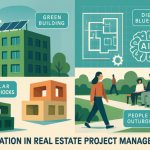Senior living is evolving to meet older adults’ diverse and changing needs. One of the most significant developments in this space is the growing emphasis on personalized care plans. These tailored approaches prioritize each resident’s physical health, mental well-being, preferences, and lifestyle, resulting in more meaningful and effective care. Rather than a one-size-fits-all model, personalized plans adapt as needs change, fostering independence and dignity.
Care providers that emphasize individualized support—such as 1stmeridiancareservices.com—play a role in promoting this shift. By addressing unique challenges and goals, personalized care helps improve the quality of life and overall satisfaction of seniors and their families. This thoughtful, adaptable approach reflects a broader trend in senior living: creating environments where residents feel seen, supported, and empowered throughout aging.
Understanding Personalized Care Plans
Personalized care plans are detailed, collaborative strategies tailored to each senior’s needs, considering medical history, routines, preferences, and goals. Developed with healthcare professionals, residents, and families, these plans ensure holistic, respectful support for issues like diet, medication, mobility, and social activities, focusing on what matters most to the resident.
Benefits of Personalized Care
● Enhanced Resident Satisfaction: Seniors receiving personalized care experience greater satisfaction, as their autonomy and dignity are prioritized. Individual preferences are respected, contributing to a sense of control and engagement.
● Improved Health Outcomes: Targeted support—such as medication adjustments, wellness check-ins, and condition management—results in better control of chronic illnesses, reduced hospitalizations, and a proactive approach to health and wellness.
● Emotional Well-Being: Customized social activities and personal engagement opportunities help mitigate loneliness and depression, strengthening mental health and emotional resilience.
Technology Integration in Personalized Care
The advent of new technologies is rapidly accelerating the shift towards truly personalized senior care. For example, genetic testing now allows providers to proactively address potential health concerns, enabling early intervention and more effective prevention strategies. Health data analytics and smart monitoring systems provide real-time insights, making daily wellness checks and medication management more efficient and accurate.
Immersive technologies such as virtual reality and augmented reality are used for cognitive games, interactive therapy, and social engagement, creating meaningful experiences tailored to each resident’s capabilities and interests. The result is greater engagement, cognitive stimulation, and a noticeable reduction in social isolation.
Role of Family Involvement
Family members are vital partners in creating personalized care plans. Their deep understanding of their loved one’s habits, milestones, and wishes provides valuable insights, often revealing preferences seniors may not express. When families are involved, the care team gains a richer view of the resident’s personality, routines, and history—helping develop solutions that reflect the individual beyond medical records. Open communication with families invites feedback and updates as needs change, strengthening trust, building community, and reassuring families that their loved ones are respected as individuals.




